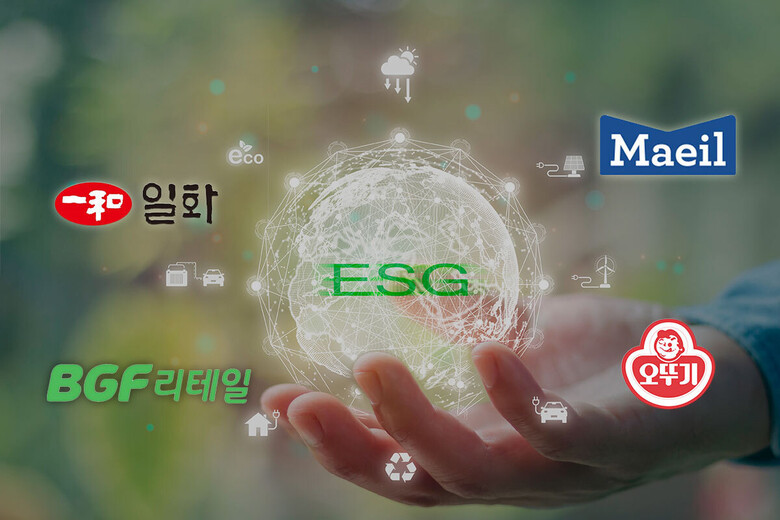
SEOUL, South Korea – South Korea's retail sector is actively embracing ESG (Environmental, Social, and Governance) management by engaging in a wide array of volunteer and sponsorship activities, leading the charge in fostering coexistence with local communities. Recently, companies across the industry have intensified their efforts for a sustainable society through various initiatives, including environmental protection, support for vulnerable groups, and cultural and artistic patronage.
Key Players Driving ESG Initiatives
According to industry sources on May 27, several prominent companies are making significant contributions:
McDonald's Korea: On May 25, McDonald's Korea hosted the '2025 McDonald's Happy Walk,' a customer-participatory charity walk at Seoul World Cup Park. The event drew 5,000 participants and raised a total of 216.25 million won (approximately $158,000 USD), which was donated to RMHC Korea (Ronald McDonald House Charities Korea). In addition to the walk, various events and performances were held, receiving enthusiastic responses from families. This initiative aligns with McDonald's global commitment to community welfare, particularly through its support for children's health.
Dong-A Otsuka: On May 24, Dong-A Otsuka sponsored the '2025 Hope Basketball All-Star Game for Children with Heart Disease' charity match with its Pocari Sweat beverage. Held at Jamsil Students' Gymnasium in Seoul, the event was organized by the Han Ki-bum Hope Sharing Foundation and featured professional basketball players and celebrities forming teams. Proceeds from the game will be used to fund surgeries for children with heart disease. Dong-A Otsuka stated, "We participated in sharing through sports to help children grow up healthy." This long-standing commitment to health and wellness aligns with their brand image.
KT&G Welfare Foundation: The KT&G Welfare Foundation conducted a volunteer activity called 'Beautiful Dream Painting' at Changnim Elementary School in Dobong-gu, Seoul, to improve the learning environment. This initiative, which began in 2005, has now been carried out in 65 schools. This year, over 150 participants, including art majors, filled the school walls with images of children's dreams and hopes. This project highlights KT&G's dedication to educational equity and supporting youth development.
Coca-Cola Korea: Coca-Cola Korea is donating 12,000 units of its ion beverage 'Toreta!' to 25 university student rural volunteer groups nationwide. This aims to ensure that students volunteering in the summer heat stay hydrated and healthy. Applications for participation are open until June 8 via Coca-Cola's official Instagram. This aligns with Coca-Cola's broader sustainability goals, which often include community well-being and responsible water use.
HiteJinro: HiteJinro is an official sponsor of the '2025 Centum Beer Festival,' taking place at the Busan Cinema Center from May 29 to June 8. The company plans to operate various experiential booths featuring Terra and Kelly draft beers, offering interactive content such as 'Somaek (soju + beer) certification' issuance, photo zones, and event zones to enhance engagement with the MZ generation. The first 2,000 visitors will also receive brand merchandise. HiteJinro has a history of supporting local festivals and cultural events, reinforcing its commitment to community engagement and responsible consumption.
Pulmuone Food & Culture: Pulmuone Food & Culture hosted a 'Happiness Sharing Bazaar' with its employees in Songpa-gu, Seoul. This public-benefit flea market utilized donated items from employees and over 7,800 Pulmuone products across 30 varieties. All proceeds from the bazaar will be donated to Goodwill Store for creating jobs for people with disabilities, and some products will be delivered to vulnerable groups in the local community. This initiative reflects Pulmuone's strong focus on social welfare and sustainable practices, a core tenet of their corporate philosophy.
Lotte Chilsung Beverage: Lotte Chilsung Beverage conducted a marine ecosystem conservation cleanup activity in Geomun Island, Jeollanam-do. Employees, in collaboration with the Korea National Park Service and the National Trust for Natural & Cultural Heritage, collected 500 kg of beach waste and participated in restoring damaged tidal flats. This activity is part of the company's social contribution brand 'WAVE' and its environmental conservation strategy, designed to contribute to the preservation of a sustainable marine ecosystem. This demonstrates a growing awareness within the beverage industry of its impact on environmental resources.
Papa John's Korea: Papa John's participated as an official sponsor of the '2025 Rapeseed Flower Marathon' held in Guri, Gyeonggi Province, providing 30 million won (approximately $22,000 USD) in sponsorship funds, along with 200 pizzas and 1,600 tarpaulin bags. The event, which saw over 3,500 participants, including individuals with developmental disabilities and non-disabled individuals, served as a platform to improve awareness of disabilities and promote social solidarity. This engagement highlights Papa John's commitment to social inclusion and community health.
Hansot: Hansot signed a business agreement with Gangnam-gu, Seoul, for 'ESG Practice with Cultural City Gangnam.' Through this agreement, Hansot plans to further activate its ESG cultural projects, focusing on supporting emerging artists and discovering local cultural and artistic content, primarily through the 'Hansot Art Space' located at its Cheongdam-dong headquarters. This initiative expands the scope of ESG beyond traditional environmental and social aspects to include cultural enrichment.
A Broader Commitment to Sustainable Value
These diverse ESG activities by the retail industry are viewed as more than just simple sponsorships; they represent a concerted effort to realize responsible corporate practices across various fields, including the environment, local communities, vulnerable groups, and culture. The genuine approach of these companies towards creating sustainable value that encompasses consumers, local communities, and the environment is expected to garner continued attention.
The increasing focus on ESG in the retail sector reflects a global trend where consumers and investors alike are demanding more accountability and transparency from businesses. Companies are realizing that strong ESG performance can not only enhance their brand image and attract talent but also lead to long-term financial stability and resilience. As regulatory frameworks around ESG continue to evolve, the retail industry is positioning itself to meet these new standards and demonstrate its commitment to a more sustainable future.
[Copyright (c) Global Economic Times. All Rights Reserved.]






























